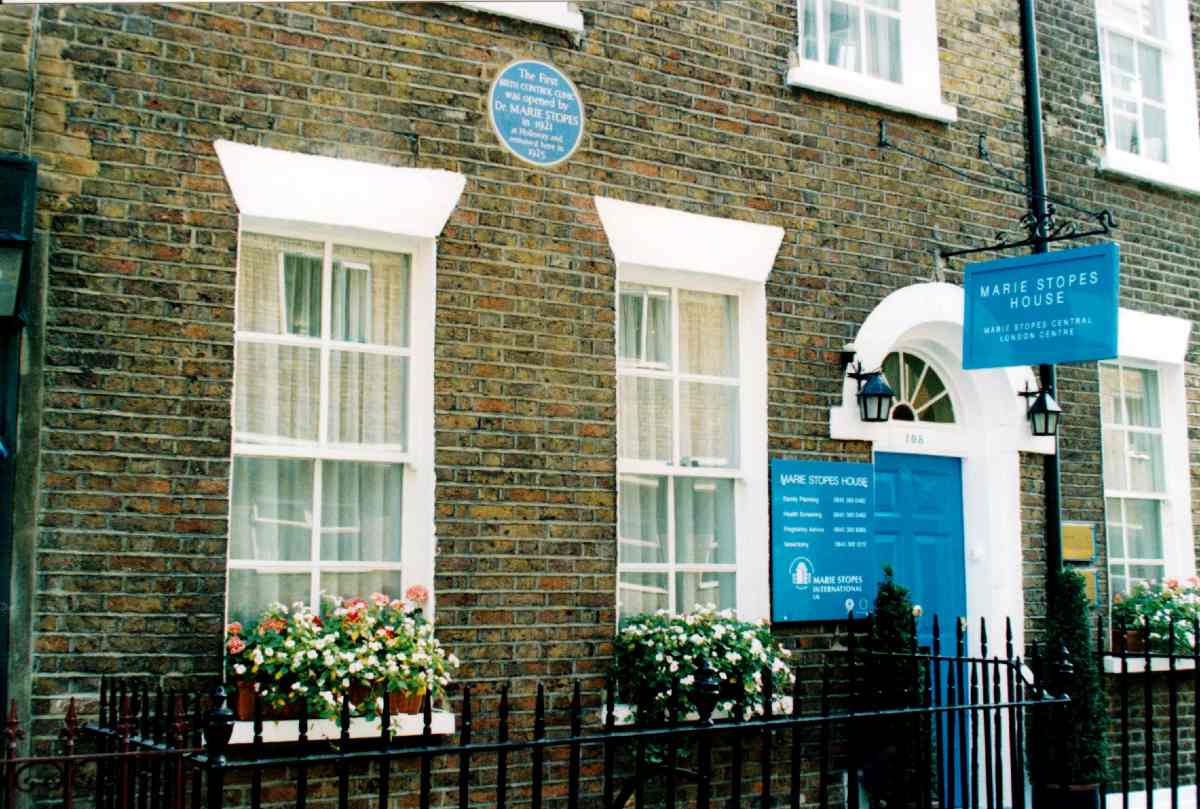
Britain’s first birth control clinic opened 100 years ago
But historians say that it is entangled with eugenics and racism
Marie Stopes House in Whitfield Street near Tottenham Court Road was Britain's first family planning clinic after moving from its initial location in Holloway in 1925. / Kim Traynor, Wikimedia
The centenary of the opening of Britain’s first birth control clinic has been more an occasion for introspection than for celebration. On March 17, 1921 Dr Marie Stopes and her husband, Humphrey Roe, opened the “Mothers’ Clinic” at 61 Marlborough Road in Holloway, a suburb of London.
Her work quickly expanded and she established a network of clinics throughout Britain. When she died in 1958 she bequeathed the clinics to the Eugenics Society. This organisation was aware that eugenics was regarded with suspicion after the Nazi atrocities before and after World War II. It decided that “the Society should pursue eugenic ends by less obvious means, that is by a policy of crypto-eugenics, which was apparently proving successful with the US Eugenics Society”.
This meshed neatly with family planning. In 1960, the Council of the Eugenics Society resolved that: “The Society’s activities in crypto-eugenics should be pursued vigorously, and specifically that the Society should increase its monetary support of the FPA [Family Planning Association] and the IPPF [International Planned Parenthood Federation] … ”. A critic of Stopes recently pointed out that: “at precisely the moment the Council decided to adopt a policy of crypto-eugenics, it increased funding of the FPA and the IPPF”.
By the mid-70s the clinics ran into financial difficulties and in 1976 they were taken over by a doctor, Tim Black, who was passionate about population control. He turned it into a multinational NGO, Marie Stopes International, one of the world’s largest supplier of abortion services.
A 1992 biography by June Rose uncovered the ugly eugenicist side of the famed birth control pioneer. There was no disputing the historical record, which showed that she was a fervent eugenicist who wanted the “hopelessly rotten and racially diseased” to be sterilised. She was also racist. In 1934, an interview in the Australian Women's Weekly disclosed her views on mixed-race marriages. All half-castes should be sterilised at birth, she said, “thus painlessly and in no way interfering with the individual's life, the unhappy fate of he who is neither black nor white is prevented from being passed on to yet unborn babes.”
So last year Marie Stopes International reinvented itself as MSI Reproductive Choices in an effort to distance itself from its eugenicist origins in a time of strident anti-racist activism.
An article in The Conversation points out that: “The historical details about her life and beliefs suggest that birth control activism had inequalities and cruelty baked into it from the very start. They show how dependent supposedly progressive ideals in the early 20th century were on eugenics and social Darwinism … And they reveal how feminist activism undertaken by middle-class white women has so frequently taken place at the expense of their poor, minority ethnic, queer, disabled and trans sisters.”
Michael Cook is editor of BioEdge
Creative commons
https://www.bioedge.org/images/2008images/Marie_Stopes_House.jpeg
eugenics
marie stopes
racism
- How long can you put off seeing the doctor because of lockdowns? - December 3, 2021
- House of Lords debates assisted suicide—again - October 28, 2021
- Spanish government tries to restrict conscientious objection - October 28, 2021
